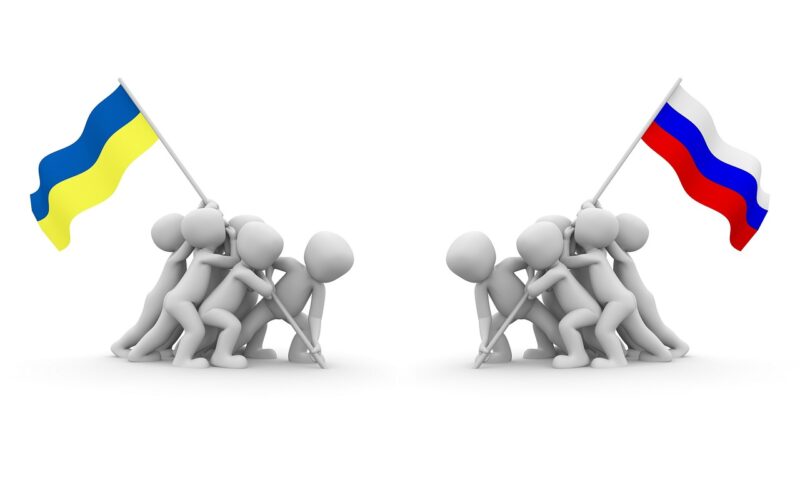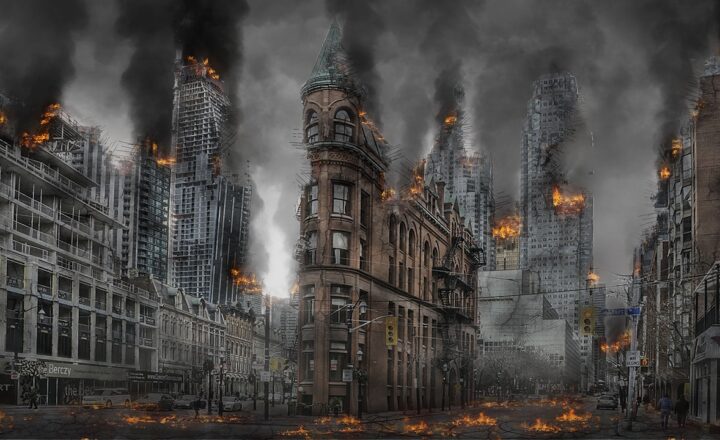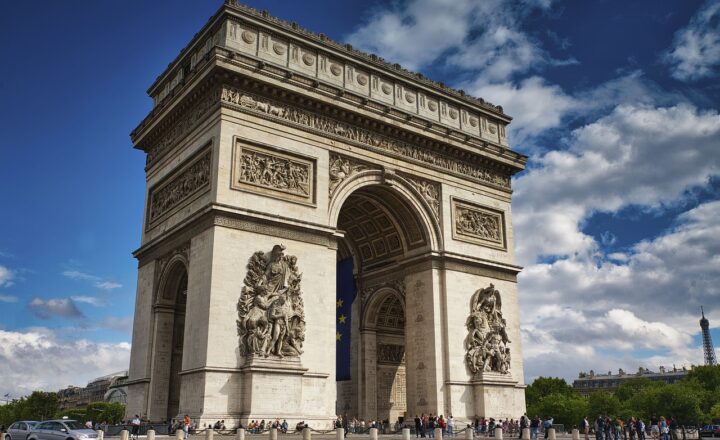Echoes of the Past: The Untold Stories of History’s Most Influential Conflicts
November 19, 2024

History is not merely a collection of dates and events but a rich tapestry of human experience, characterized by conflict, resolution, and the triumph of the human spirit. Conflicts shape nations, cultures, and societies, and while many stories of these confrontations are well documented, numerous untold narratives exist, waiting to be explored. This article delves into some of history’s most influential conflicts, illuminating the less known yet impactful stories that echo through time.
1. The Peloponnesian War: A Struggle for Power
The Peloponnesian War (431-404 BC) marked a pivotal moment in ancient Greek history. The conflict erupted between the city-states of Athens and Sparta, leading to a decade-long struggle for supremacy. While Thucydides provided a detailed account of this war, many stories of ordinary soldiers and citizens remain untold.
One such story involves the Athenian general Alcibiades, who played a crucial role as both a hero and a traitor. His shifting allegiances from Athens to Sparta and then to Persia showcase the complexity of loyalty in warfare. The consequences of his actions were profound, leading not only to Athens’ eventual downfall but also to the transformation of warfare itself.
The Peloponnesian War illustrates how power dynamics, betrayal, and the human experience interweave in the fabric of history, reminding us that conflicts are often as much about personal stories as they are about political entities.
2. The Taiping Rebellion: A Struggle for Religious Freedom
In the mid-19th century, China was embroiled in one of the deadliest conflicts in history—the Taiping Rebellion (1850-1864). Led by Hong Xiuquan, who believed he was the younger brother of Jesus Christ, the rebellion aimed to overthrow the Qing Dynasty and establish the Taiping Heavenly Kingdom based on his interpretation of Christianity.
While often overshadowed by other historical events, the Taiping Rebellion tells the story of a society yearning for change and religious freedom. The war resulted in the deaths of an estimated 20 to 30 million people, making it one of the deadliest conflicts in history. Moreover, it highlighted the tensions between traditional beliefs and the allure of new ideologies that promised a better future.
3. The Polish-Soviet War: The Fight for Independence
The Polish-Soviet War (1919-1921) is often overlooked in discussions of post-World War I conflicts. After the war, Poland sought to reestablish its independence, facing opposition from the newly formed Soviet Union. While historical accounts often focus on major battles, the untold stories of ordinary soldiers and civilians present a much more layered perspective on the conflict.
One such narrative focuses on the role of women in the war. They not only served as nurses on the front lines but also took up arms, contributing significantly to the Polish effort for independence. These brave women fought against societal norms and expectations, carving out a place for themselves in a primarily male-dominated field.
The Polish-Soviet War ultimately secured Polish independence but served as a reminder of the wars fought long before the emergence of modern nations, showcasing the resilient spirit of those who yearned for a homeland.
4. The Nigerian Civil War: The Battle for Ethnic Identity
The Nigerian Civil War, or Biafran War (1967-1970), was primarily fought over ethnic and political tensions between the Igbo people and the Nigerian government, leading to the secession of Biafra. While this conflict is often associated with the humanitarian crisis that ensued, numerous untold stories explore the complexities of identity and survival in times of conflict.
One poignant story is that of the young Igbo children caught in the crossfire. The war led to widespread famine, and countless children suffered due to malnutrition. However, amidst the destruction, NGOs and international organizations worked tirelessly to provide relief. The resilience of these children, combined with the efforts of relief workers, emphasizes the human capacity to endure amid hardship.
The Nigerian Civil War highlights how conflicts can stem from deeper issues of identity, with communal ties often taking center stage in shaping narratives.
5. The Israeli-Palestinian Conflict: A Never-ending Saga
The Israeli-Palestinian conflict is a complex and deeply rooted struggle, marked by political tensions and territorial disputes. While many accounts center around political figures and military actions, numerous personal stories capture the everyday experiences of those living under the shadow of conflict.
Consider the story of Palestinian journalist Azmi, who risked his life to report on the suffering of his people in the West Bank. His work sheds light on the human cost of the conflict, and through his lens, readers can grasp the psychological toll and relentless cycle of violence faced by both Palestinians and Israelis.
By highlighting human experiences, the narrative of the Israeli-Palestinian conflict transcends political discourse and captures the ongoing struggles for peace, identity, and justice.
Conclusion: The Importance of Untold Stories
The conflicts of history are more than just battles and treaties; they are characterized by human experiences that deserve to be told. The narratives of those caught in the crossfire, whether soldiers, civilians, women, or children, contribute significantly to our understanding of historical events.
As we continue to explore the echoes of the past, it is crucial to unearth these untold stories. They remind us of our shared humanity and the enduring impact of history’s conflicts on the present and future.
By studying the multifaceted nature of conflicts, we not only honor those who lived through them but also gain insights that can inform our present struggles and pave the way for a more peaceful future.








